Critics are having a field day with Napoleon, and bringing the brunt of their analytical prowess to bear on Ridley Scott and Joaquin Phoenix’s new creation. It seems that when taken at face value, nothing is quite as riveting as reading the history of the late 17th and 18th centuries, but all the excitement of real-life events can’t keep up with the requirements of the cinematic medium, culminating in yet another historical Ridley Scott rollercoaster where the natural filmmaking inclination for dramatization overpowers the need for authenticity.
And sure, when you look at Scott’s back catalogue, none of those earlier movies adhered to real history, whether it be Gladiator’s the Roman Empire or Robin Hood dealing with the mythic figure of Sherwood Forest. On the flip side, many cinemagoers seem to believe that a historical movie centering around the life of a real person — and one as prominent as Napoleon — should actually take care not to misrepresent the reality of what went down. At least not too much.
So, whether you find yourself on the side of Ridley Scott admirers, or those historians currently lambasting his latest undertaking, we’ve decided to break down everything you need to know about Napoleon and its truthfulness to history, starting with the man himself.
Is Joaquin Phoenix’s Napoleon true to the real generalissimo?

The first thing historians and those with a keen interest in Napoleon Bonaparte’s life will realize about Ridley Scott’s film is the eccentric portrayal of the titular character by Joaquin Phoenix. While the real-world Napoleon was said to be cunning, witty, brilliant, and self-confident, the film version can come off as unsettlingly erratic.
There’s this great debate about where you could rank Napoleon in the list of history’s most vicious killers. Some make Napoleon out to be a great tyrant. Many even compare him to Hitler. But however one approaches the problem of the millions of people he killed, inadvertently or otherwise, during his ambitious political career, one shouldn’t forget that Napoleon was also a great purveyor of the Enlightenment.
After taking power and becoming the so-called “First Consul” of the newly instated republic, Napoleon used his absolute power to bring about a lot of non-military amendments, including the establishment of the Bank of France and the Civil Code of the French, which saved the country from a period of impoverishment and essentially put an end to the aftershocks of the Reign of Terror. (Though the latter happened when Napoleon had taken the crown and proclaimed himself Emperor.)
Ridley Scott’s movie only focuses on Napoleon’s military achievements, which undermines many major aspects of his character. When watching the new flick, it’s not so difficult to draw up the same misguided comparisons to Hitler, but while Napoleon was certainly ambitious and egotistic, he certainly didn’t kill as many people as Hitler did, in a bloodthirsty and genocidal rampage across Europe.
Last but not least, a reason for Napoleon’s unparalleled fame was the mind-numbing scope of his achievements at such a young age. Due to the general’s military genius and unmatched charisma, he managed to become the leader of the French armies and ultimately the de facto ruler of the entire nation by the age of 30. Unfortunately, Joaquin Phoenix was 47 when Ridley Scott began principal photography on Napoleon, so he doesn’t quite embody that zealous youth. This also complicates the matter of his wife Joséphine de Beauharnais, which is a whole different can of worms.
Is Joséphine depicted accurately?
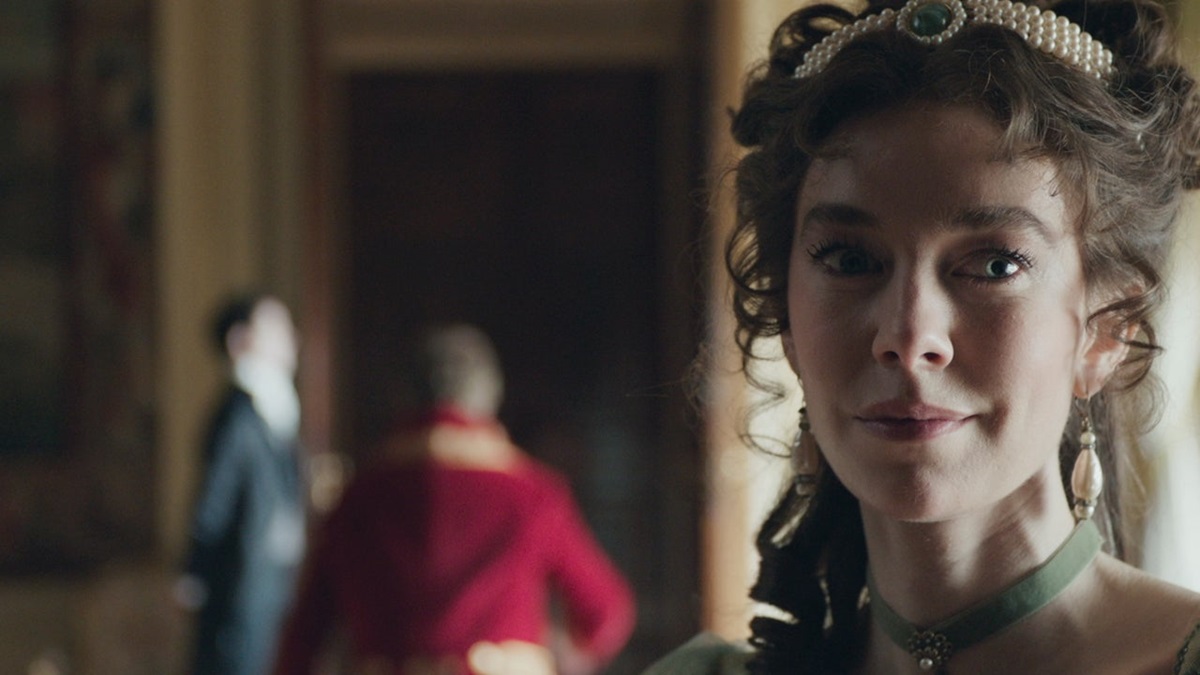
Joséphine’s portrayal is perhaps the most truthful out of all the characters who appear in this film. Vanessa Kirby does a wonderful job of portraying the mistress-turned-empress and perfectly captures her worldly demeanor. It’s also accurate that she cheated on Napoleon, but unlike what we see in the movie, the general didn’t leave his campaign in Egypt to rush back home and confront the scandal.
Vanessa Kirby is more than 10 years younger than Phoenix, so watching the two of them as Napoleon and Joséphine is almost like gazing into an alternate dimension where the roles have been reversed. The fact that Vanessa is much younger-looking doesn’t do any favors to her dominant role in that relationship, either.
Lastly, it should be noted that Napoleon didn’t slap Joséphine during their divorce. As historian Michael Broers explains it in blunt terms during an interview with Time, “It did not happen. Secondly, it’s out of character. He would never do a thing like that.”
The real world Joséphine was said to be ambitious and even power-hungry, attaching herself to powerful men to gain status. Napoleon, on the other hand, was completely besotted with her, so when the two realized that she couldn’t get with child, the Emperor had no choice but to let her go. One needn’t look any further than Napoleon’s alleged last words — “France, the Army, the Head of the Army, Joséphine” — to realize that he never stopped loving his former wife.
That said, Napoleon doesn’t escape Elba after hearing about Joséphine’s ailment, like in the movie. He learned about her death when still in exile, driving him to seclusion for a while.
Did Napoleon fire on the pyramids?
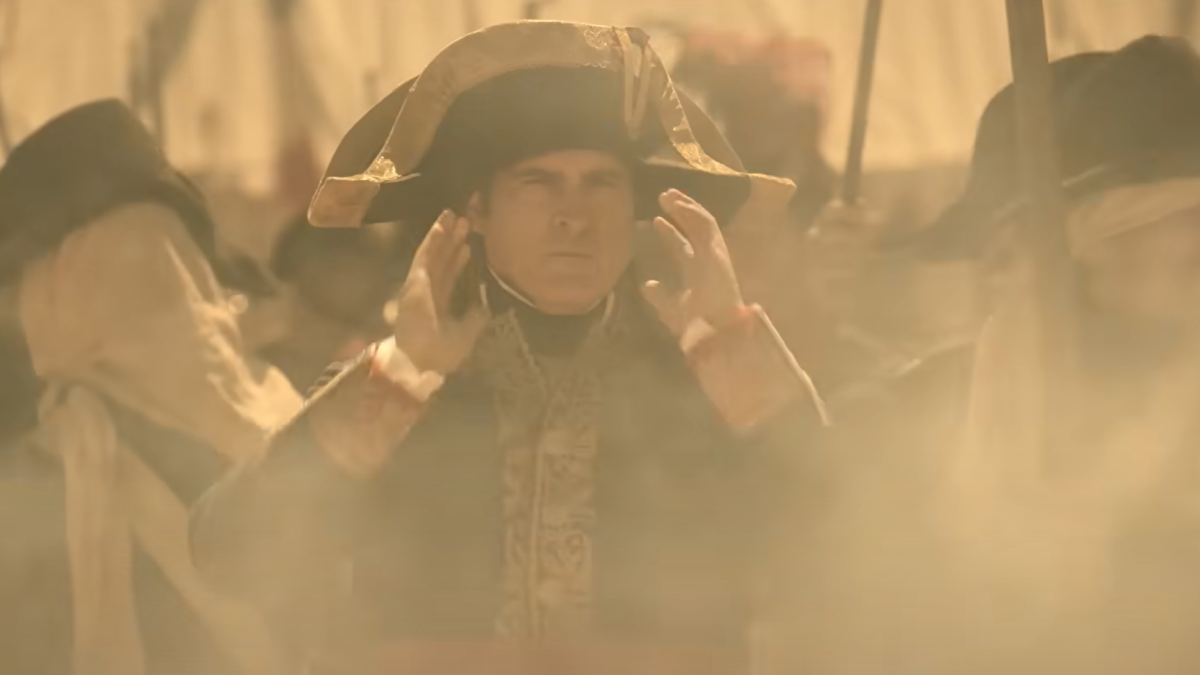
Nothing, no matter how absurd and unrealistic, will stop a filmmaker from shooting a scene he deems to be, so to speak, cool. The controversial pyramids scene in Napoleon unfortunately follows the same philosophy. As mentioned above, Napoleon didn’t leave Egypt because of Joséphine, but due to supply problems, and he almost certainly didn’t shoot at the Pyramids, being himself a patron of arts and history.
Besides, as historian Dan Snow explained after watching the movie’s trailer, it would be physically improbable, if not downright impossible, for those cannons to hit the top of the pyramids.
Did Napoleon really say that line to the British about their boats?
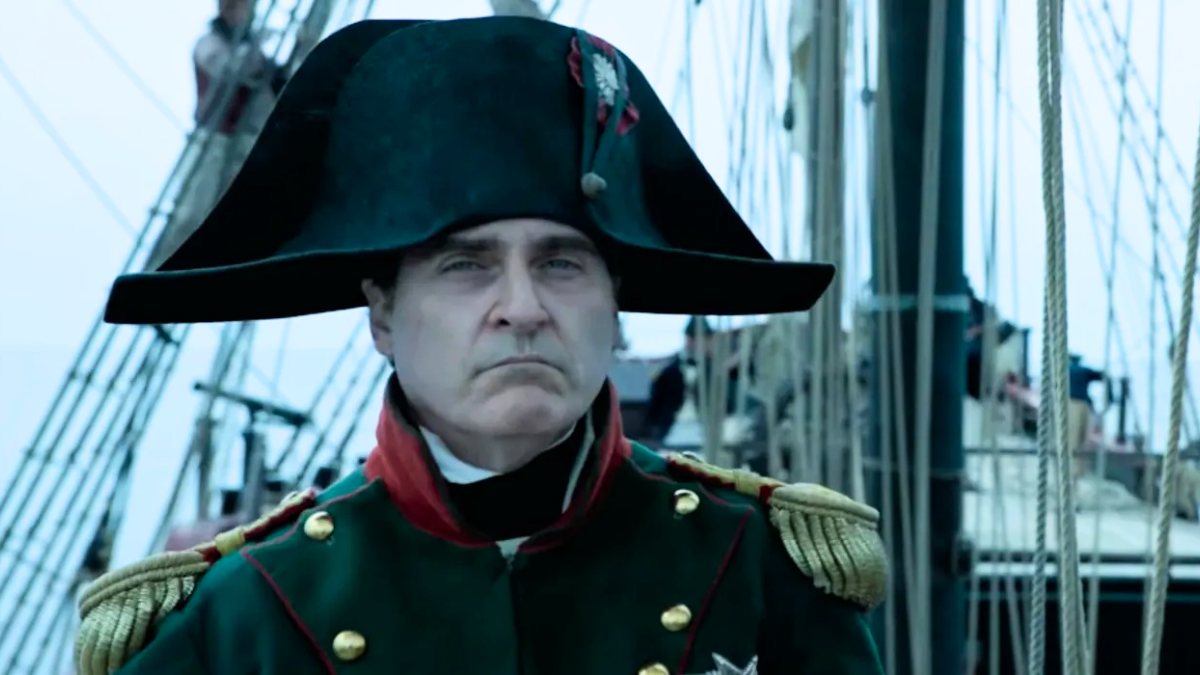
While Napoleon had ambitions to invade Britain and eventually conquer it, his defeat at the Battle of Trafalgar proved that there was no defeating the royal navy. As for the famous movie line, where Napoleon says to the British ambassador, “You think you’re so tough because you have boats,” well, those were not his exact words, but according to Broers, he said something very similar to that, and it is indeed based on a true encounter with the British spymaster William Wickham.
Marie Antoinette’s execution, the unexpected cannonball scene, and the meeting with the Duke of Wellington

Napoleon didn’t bear witness to Marie Antoinette’s execution, because at the time, he was garrisoned somewhere in the south. Napoleon did, however, see the king and his queen being thrown into jail in 1792, and that must have impacted him greatly. Ridley Scott is combining these two elements, and we’re willing to let it slide.
Another scene in Napoleon shows the titular protagonist reaching a hand inside his dead horse to retrieve the cannonball that killed him. According to Scott’s version, this was during the Siege of Toulon, which marked Napoleon’s first major military victory through unconventional strategy, ultimately contributing to his rise to fame and influence. Well, even if it’s true that Napoleon burned through a number of horses during his military campaigns, there’s no evidence for this gesture. And while the general sustained a leg injury from a nearby cannonball explosion on that fateful night, he pushed on and led his men to victory.
Ultimately, it should be noted that unlike the movie version, Napoleon and the Duke of Wellington never met after the Battle of Waterloo. Napoleon lost Waterloo due to strategic errors, and the tens of thousands of Prussian reinforcements that came to Wellington’s aid. Together, they dealt the ambitious Emperor of France his final defeat.
Napoleon spent his remaining days in exile on an island in the middle of the Atlantic Ocean. The movie depicts him writing his memoirs, known as Mémoires de Napoléon, which is in keeping with real history.
What does Ridley Scott have to say about these inaccuracies?
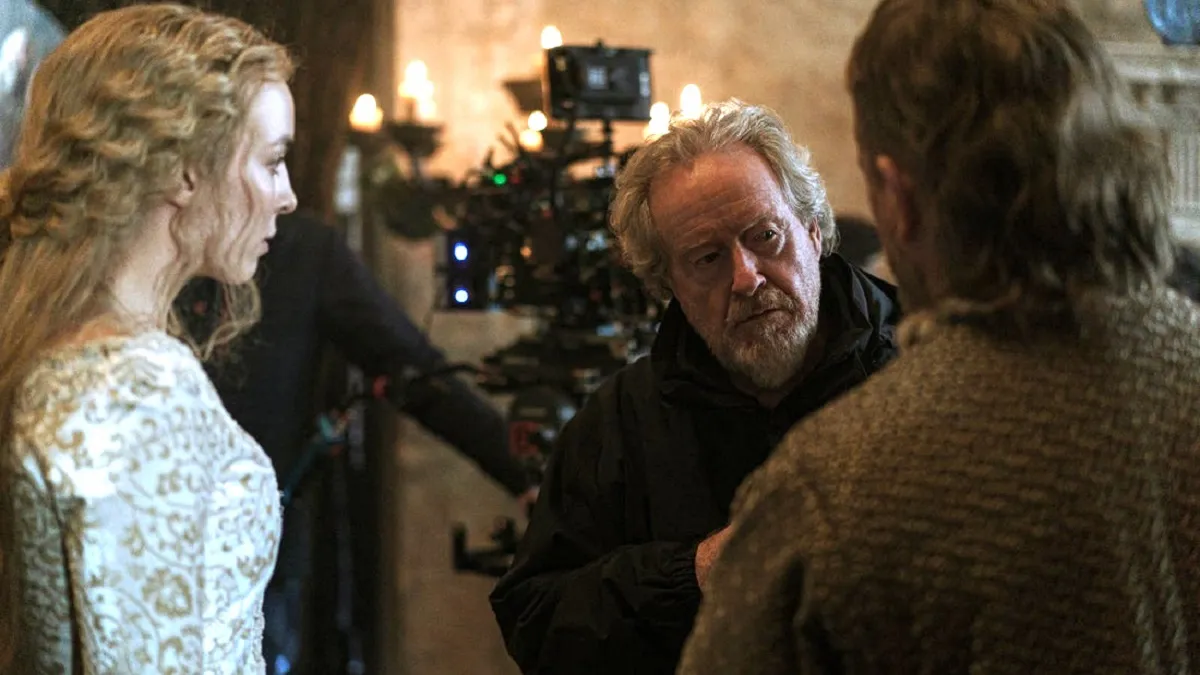
Scott doesn’t seem to care about all of these historical inaccuracies. When confronted by these critiques from historians and French reviewers, this is what the Alien director told The Times.
“Like all history, it’s been reported. Napoleon dies, then, 10 years later, someone writes a book,” he explained. “Then someone takes that book and writes another book and so, 400 years later there’s a lot of imagination.“When I have issues with historians, I ask: ‘Excuse me, mate, were you there? No? Well, shut the f**k up then.'”
We’re not sure if history works quite like that, as Andrew Roberts explains in a recent chat with Sky News. But I guess when all is said and done, this was Ridley Scott’s movie, and it would’ve reflected, one way or another, his particular creative vision for the character.

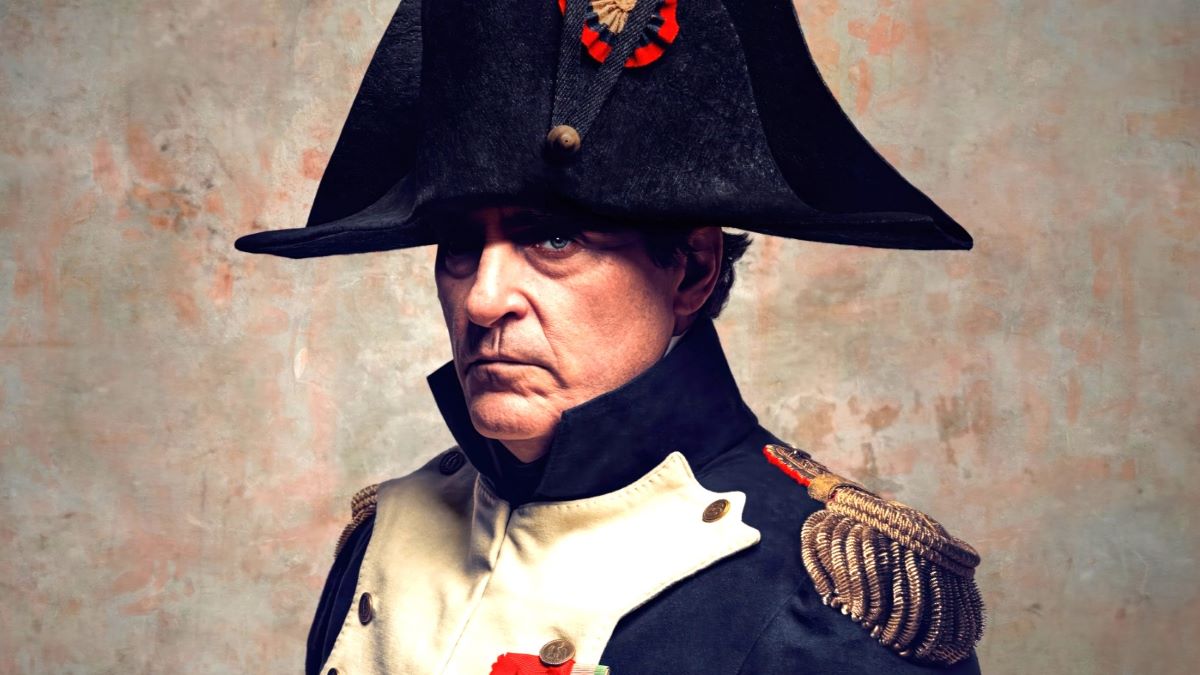








Published: Nov 30, 2023 05:48 pm